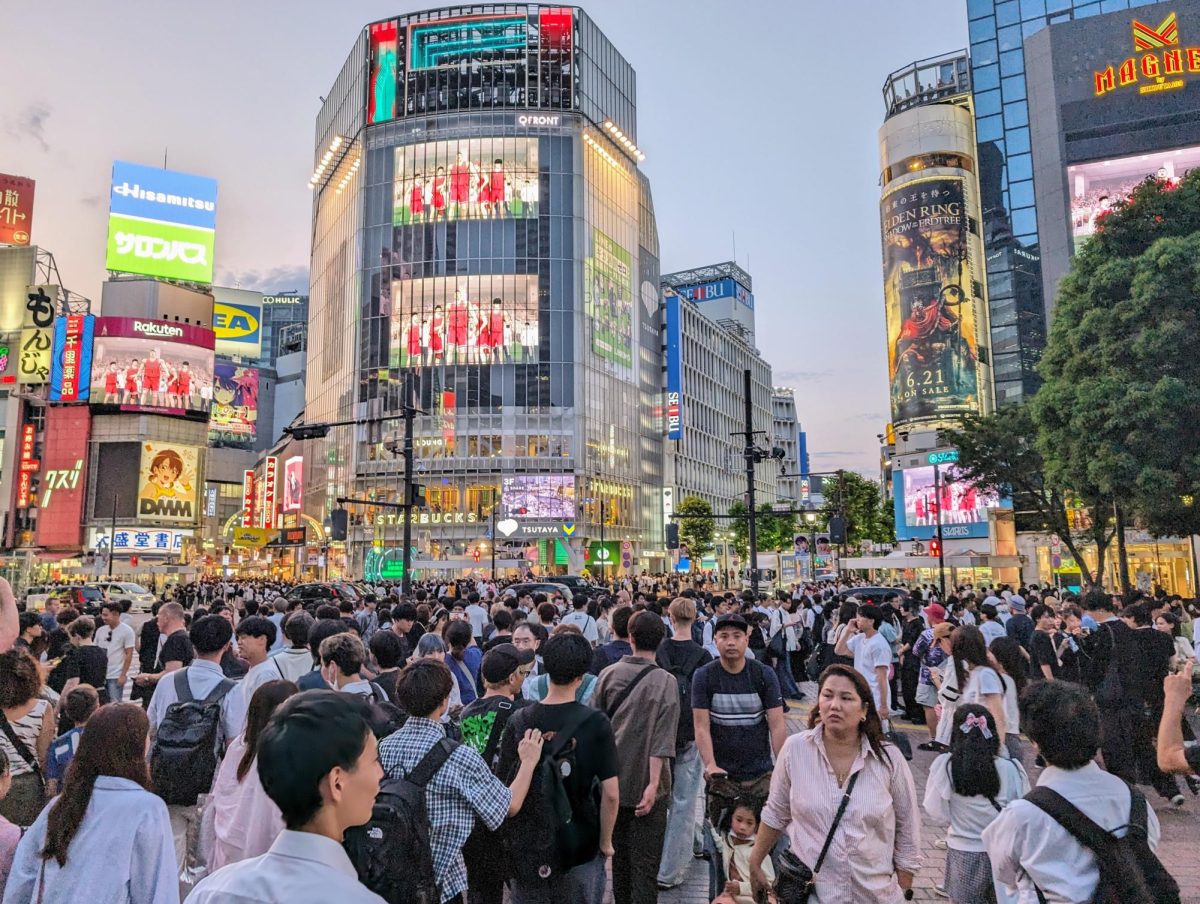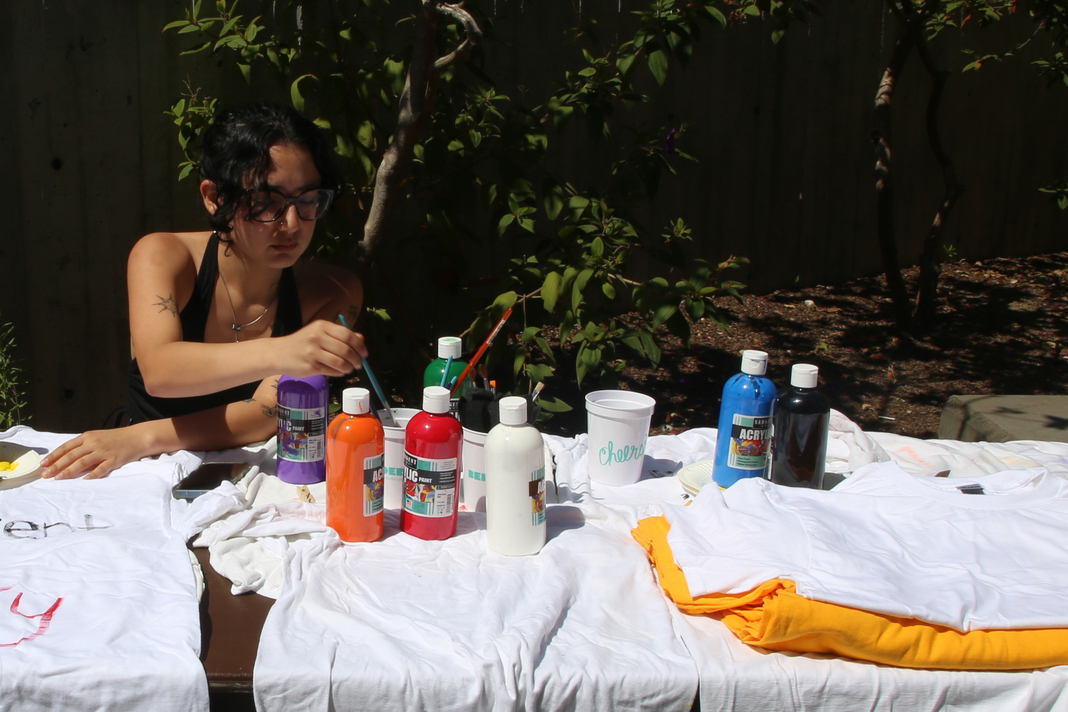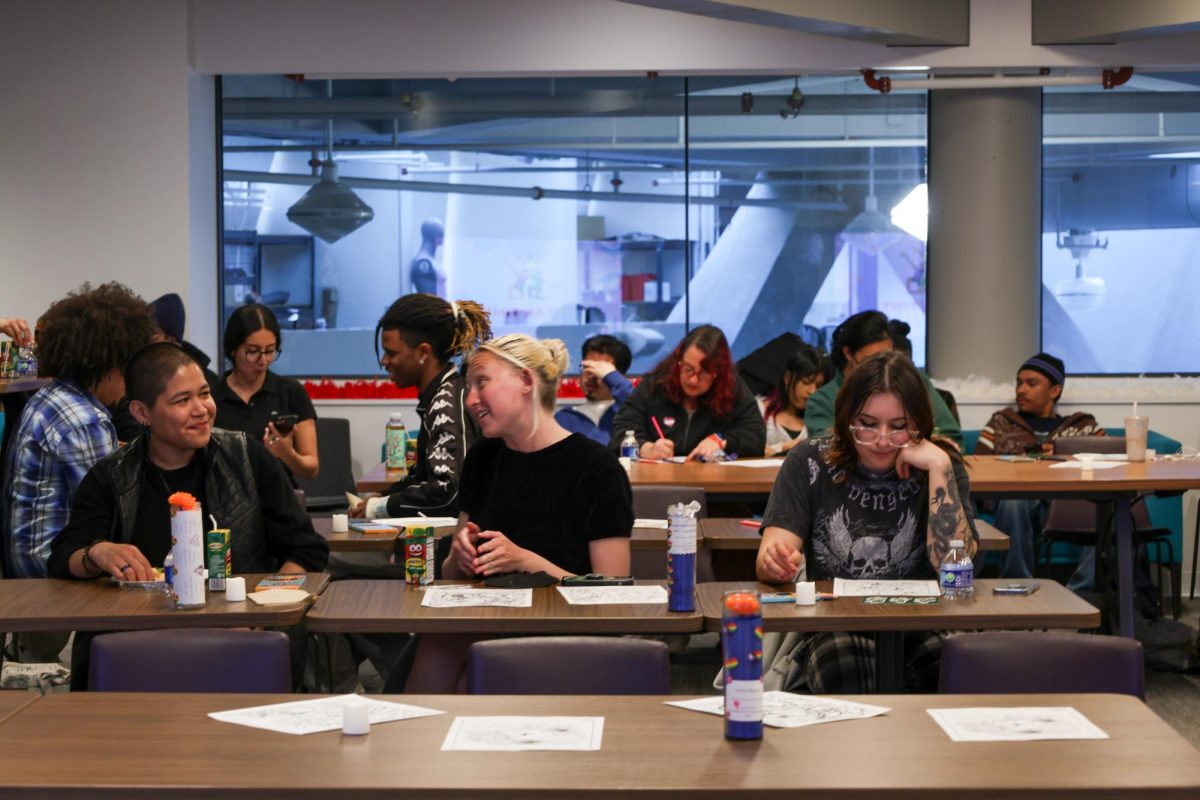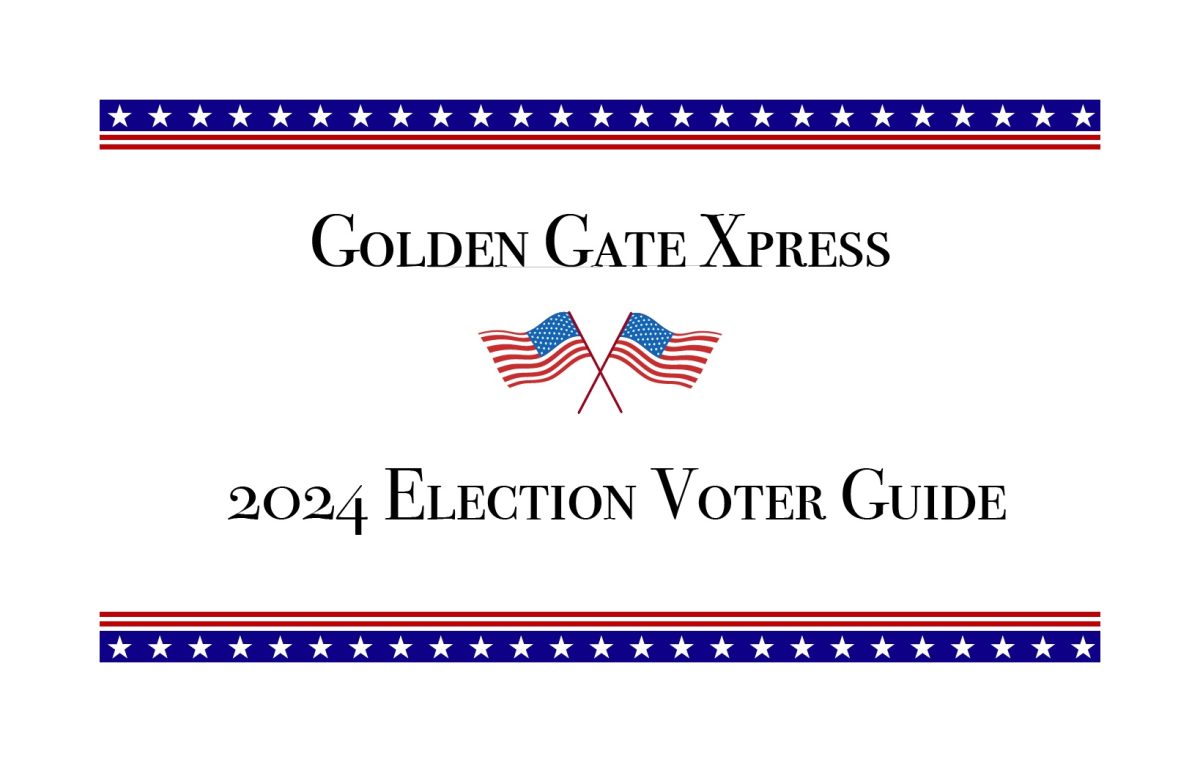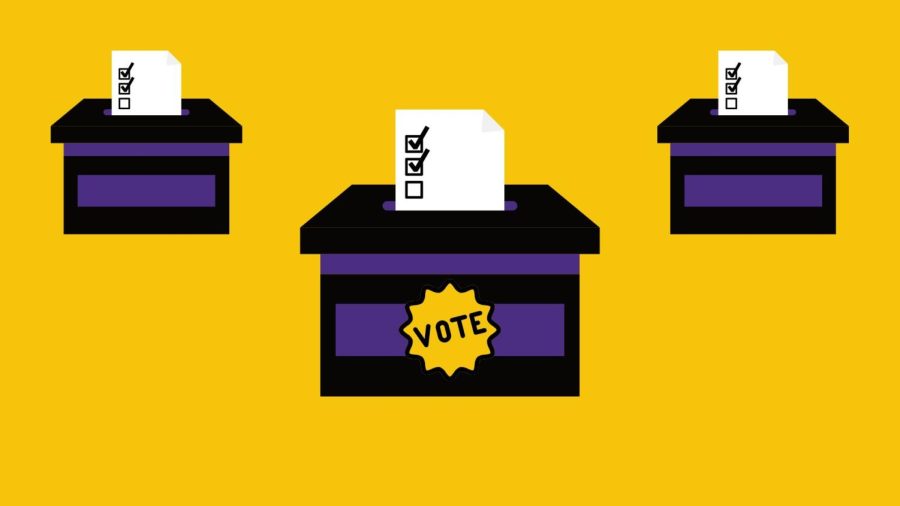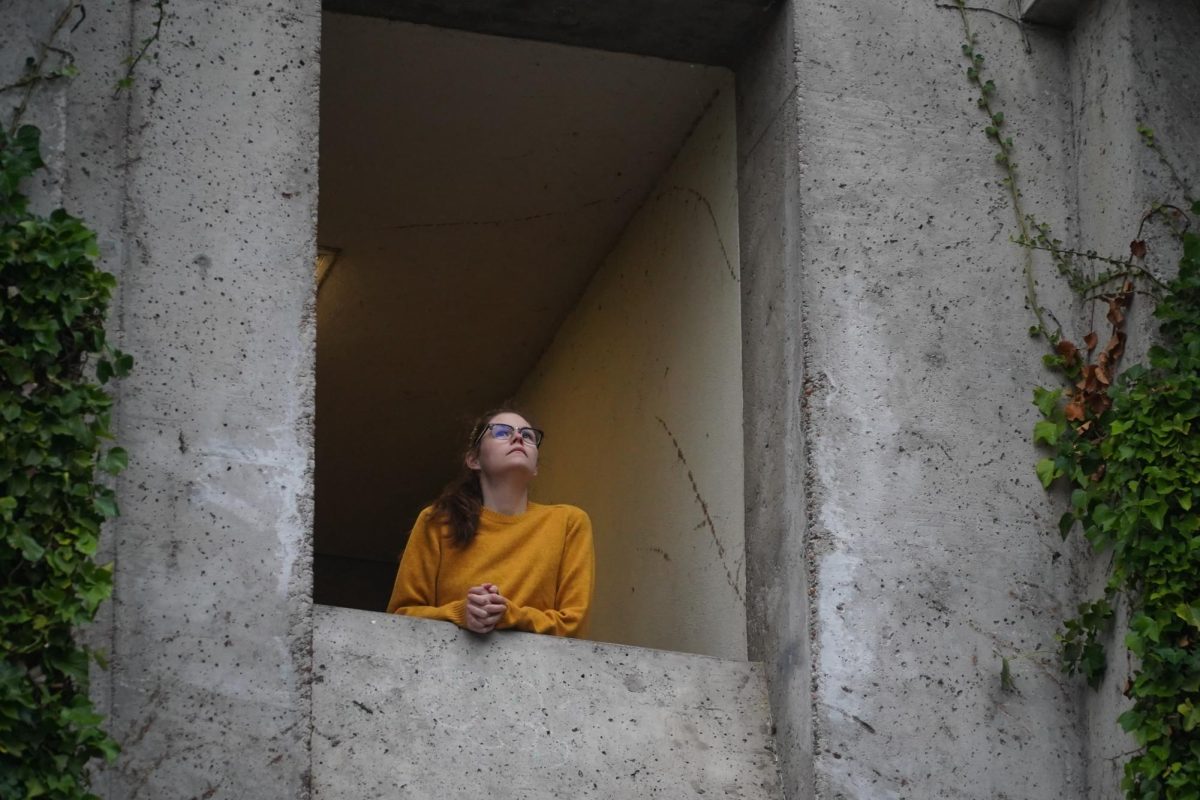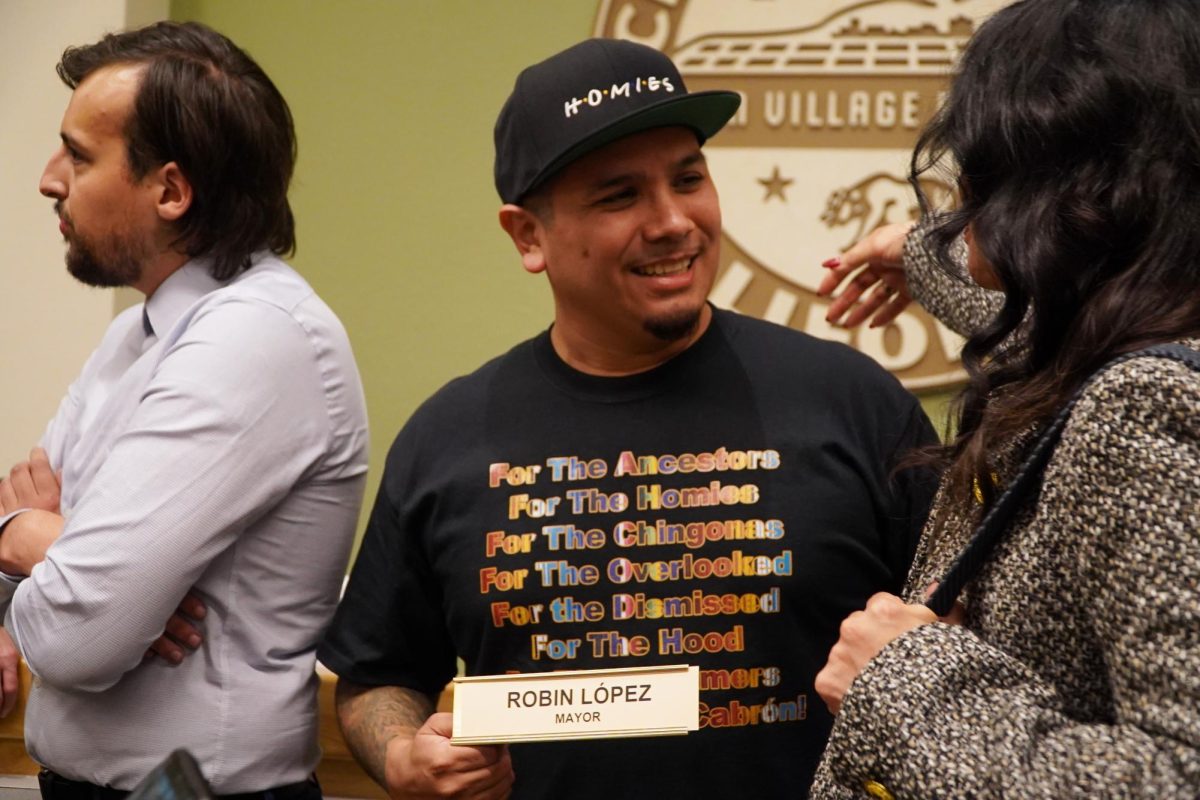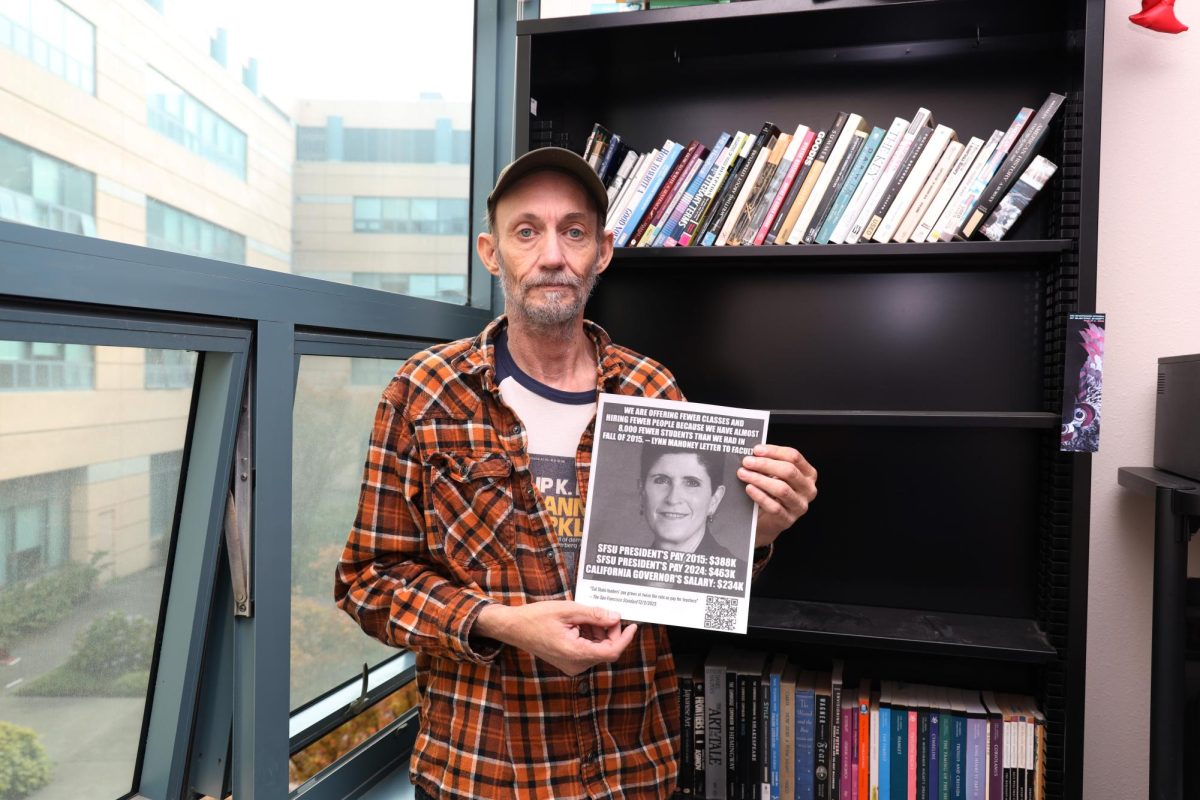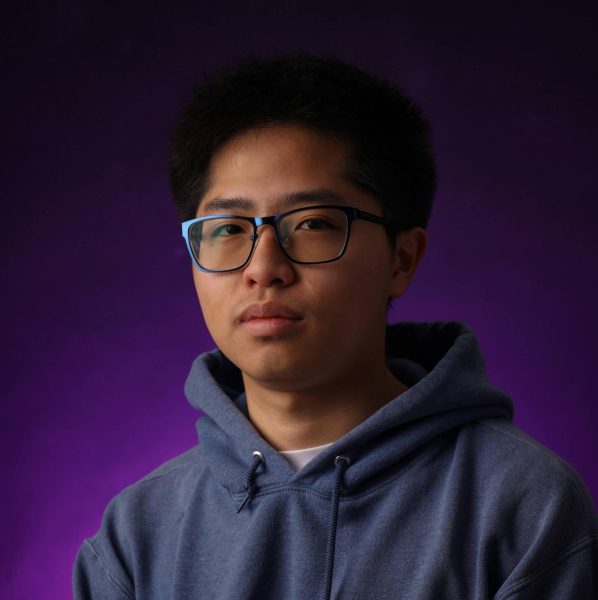Studying in a foreign country can be a life-changing experience. American students and students from foreign countries, including those who are undocumented, can participate in an SF State Abroad program.
“If you have even a slight interest — you think this might be something you are interested in, you should definitely look into it,” said Janelle Waldrep, SFSU’s lead study abroad officer. “The number one regret of college graduates is not having studied abroad. I can tell you from my personal experience how much that time meant to me.”
At the time of publication, 95 programs are available on the SF State Abroad database, some of which are offered in English. Other options for students include faculty-led study abroad programs or independent programs unaffiliated with SFSU.
“I love to brag that we’re on six of the seven continents — every continent but Antarctica,” said Waldrep, who holds a doctorate in education.
The priority deadline to apply for an SF State Abroad exchange program for Spring 2025 or calendar year 2025 (year-long programs spanning both spring and fall semesters) is September 15. Students can still apply by October 1, but there may be fewer options due to deadlines set by partner universities and a lack of space for exchange students in some programs.
Students can participate in SF State Abroad programs for up to four semesters. Resources, advising, and support are available through the SF State Abroad website and by contacting the outbound exchange team.
How to be an exchange student through SF State Abroad programs
The SF State Abroad programs encompass the SF State Exchange Programs — one-to-one exchanges with partner universities, and the California State University International Programs (CSUIP), exchange programs administered by the chancellor’s office. In CSUIP programs, students from one CSU campus are exchanged for an international student who might attend a different campus.
“I really wouldn’t worry about which program type it is, because they’re not meant to be in competition with each other,” said Waldrep. “Where you choose to go really does depend on your academic goals. There’s that pesky word ‘study’ in front of study abroad.”
Waldrep recommends that students think about studying abroad as early in their time at SFSU as possible, because there are more requirements unmet, meaning there are more SF State abroad programs that make sense to participate in. Waldrep said it’s important to think about whether you want to make progress toward your major, minor, General Education (GE) requirements, or learn another language.
That helps narrow down the universities to apply to since some don’t offer certain courses or majors. Further, students can use the SF State Abroad database to search by country, language of instruction, type of program, subjects and other filters.

Kimberly Ma, a fourth-year public health student, recommends talking to your major advisor and an undergraduate advisor before applying to study abroad.
“They both will help you plan and help you know which classes to take while in a foreign country,” said Ma, who studied at Chung-Ang University in South Korea in Spring 2024.
Once students decide where to go, the next step is the application process.
“It was mostly straightforward — all the questions that are in the application speaks for itself. It tells you what to do. Most of them are writing prompts. You have to explain why you want to go,” said Michelle Ann Bartolo, a cinema student who also studied at Chung-Ang University in Spring 2024.
After an application is submitted, the study abroad outbound exchange team nominates students to partner universities.
“When a student is nominated, they have the support of San Francisco State and we are telling the partner ‘we would like to send this student to you,’” said Waldrep. “Because it’s an exchange agreement, we say, as in the spirit of partnership, the partner has the final authority to say they will accept the student. It’s extremely rare for a partner university to not accept a student that we have nominated […] If students get nominated, I do think they should be very happy, very excited — feel free to tell their family and friends because we see them as students who will be studying abroad.”
Waldrep recommends not booking anything nonrefundable if you’re nominated but haven’t received a letter of acceptance from the partner university yet.
“We do recommend that students wait until they get their official acceptance letter from the partner university, since it will include important information like their arrival dates, any specific information the partner wants them to know about how and when to arrive at that university,” said Waldrep.
Once a student is nominated by SFSU, there are three mandatory meetings. The first is the nomination meeting, according to Waldrep.
Topics such as when to buy a plane ticket, costs, how to receive a physical screening, how to transfer credit earned at the partner university and visas are discussed at the meeting.
“We also do an orientation, where we go over health and safety, additional information about financial aid and preparing to be a student for study abroad,” said Waldrep.
The orientation is the longest event. Students start with a lengthy presentation detailing financial aid, advice, planning, academic dishonesty, differences in cultures, insurance and more. Then, they break into groups for the countries they’ll be studying in to talk to SFSU students who studied in those countries previously.
“Then we have a study abroad ceremony, which is a celebration,” said Waldrep. “We encourage you to bring your family, friends and professors to come celebrate.”
Studying Abroad for undocumented students

If you’re an undocumented student, the first step is to talk to an immigration lawyer first to figure out whether or not you can participate in an exchange program and the risks of doing so, according to Griselda Madrigal Lara, the DREAM Resource Center coordinator.
“It’s definitely important to meet with an attorney months in advance before you are planning on leaving. So that would be the biggest difference,” said Madrigal Lara. “It will depend on case to case, but then again, that’s why the consultations are so important.”Those consultations would be through Immigrant Legal Defense, a law firm that participates in CSU’s Immigration Legal Services Project, which provides free legal consultations about immigration-related issues to CSU students and employees, their families, recent alumni and admitted students.
“The majority of the students that I know that have studied abroad — they do have DACA, which is Deferred Action for Childhood Arrivals,” said Madrigal Lara. “It is a little difficult to have that now that they’re not accepting initial applications, so I think that definitely affects how many [undocumented] students are studying abroad.”
The most challenging part of the process could be returning, said Madrigal Lara.
“Entering through customs could be scary because they tell you that it’s discretionary, right? Like the person at customs can either let you in or not let you in,” said Madrigal Lara, who visited family and related the experience to how it would be to return as an undocumented exchange student. “As an undocumented person myself going through advance parole with Deferred Action for Childhood Arrivals, that was a little scary, but according to the attorneys, it has never happened that people don’t get back in.”
Money might also be an issue. The California Dream Act Application (CADAA) is similar to the Free Application for Federal Student Aid (FAFSA) in determining eligibility for state financial aid and loans. However, the CADAA doesn’t determine eligibility for federal financial aid.
“Undocumented students don’t qualify for FAFSA, which can be more than the California Dream Act,” said Madrigal Lara.
This means CADAA applicants can’t receive Pell Grants, which are federal aid. In turn, they’re not eligible for the Gilman Scholarship, an award of up to $8,000.
Faculty-led programs
SFSU faculty have led programs in foreign countries. These programs are administered by the College of Global and Professional Education and their application process is separate from SF State Abroad programs.
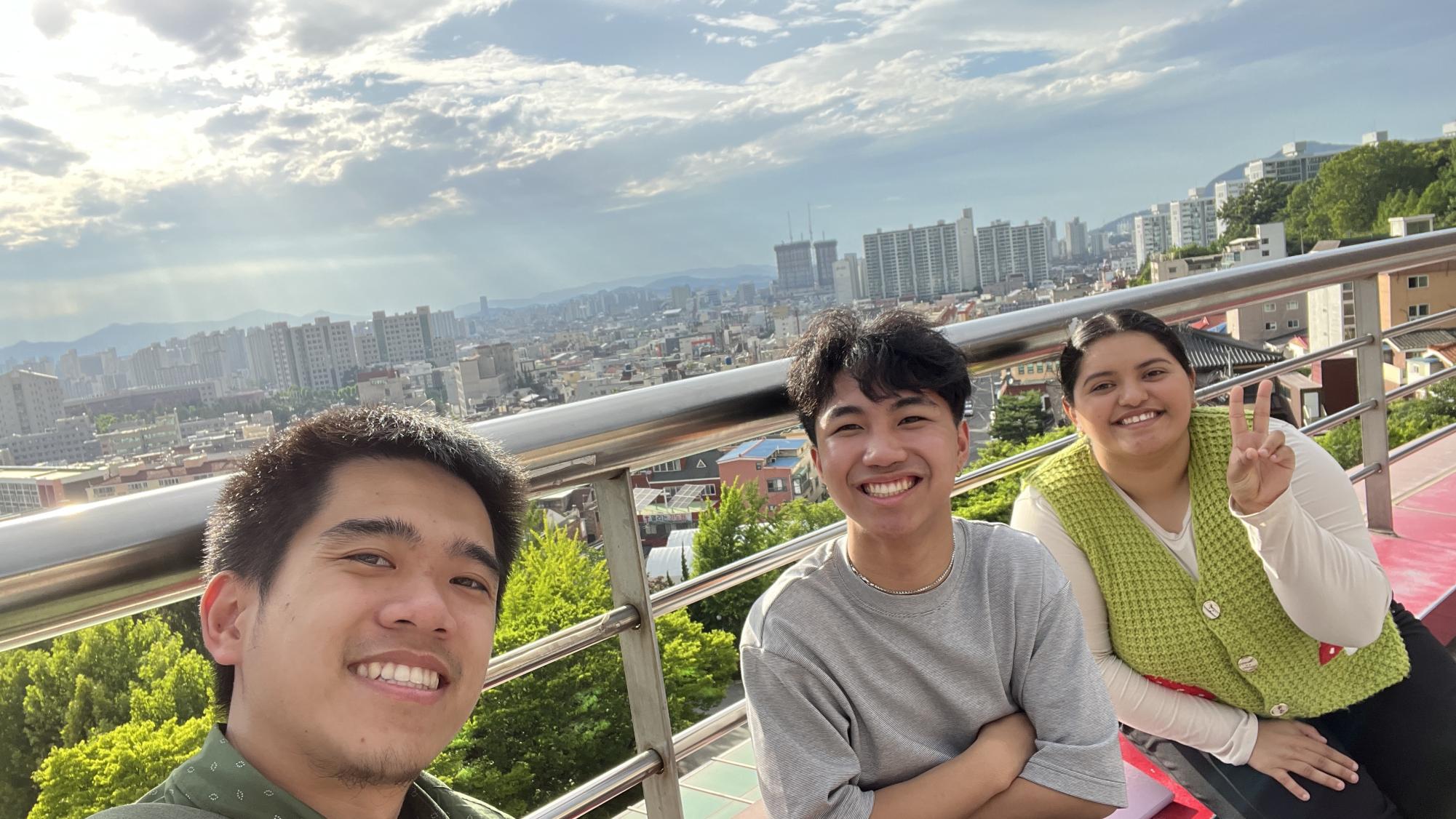
Jared Lai, a fourth-year psychology student, was part of a psychology service-learning program in Summer 2023, at Woosong University in Daejeon, South Korea.
“Our goal in Korea was to teach preschoolers and elementary school kids social and emotional learning,” said Lai.
In the program, SFSU students partnered with Woosong University students to deliver lessons to children at the university’s preschool.
“If you can study abroad and if you can afford to, because being able to afford, it is really a big part of it, honestly, but I’d say if you are able to do it, give it a shot,” said Lai.
Money
Depending on the location of the foreign university and how you spend your money, the whole experience could be cheaper or more expensive than in San Francisco.
All financial aid awarded can be used for SF State Abroad programs. There are also a variety of scholarships available just for those programs.
“We’ve been a national leader in the number of Gilman Scholarships SFSU students have received in the last 20-some years,” said Waldrep.
The Benjamin A. Gilman Scholarship is for Pell Grant recipients who want to study or intern abroad. The award amount is $5,000 with an additional $3,000 for students learning critical need languages.
The Fund for Education Abroad scholarship, which awards $1,000 to $5,000, is for U.S. citizens, permanent residents, and DACA recipients, prioritizing first-generation students and students of color.
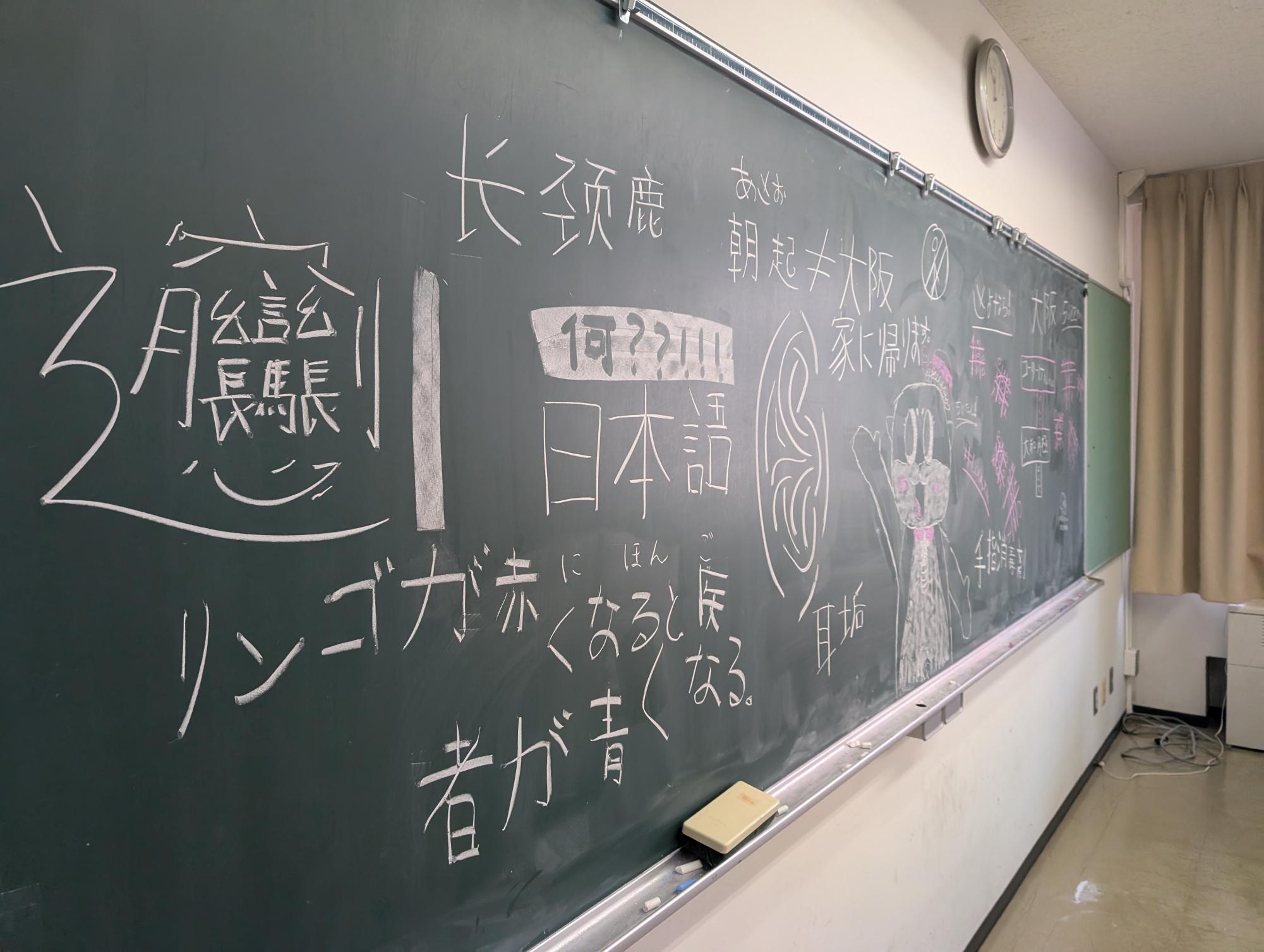
Cole Chiodo studied at Meiji Gakuin University in Japan in Spring 2023.
“The number one thing I always go back to is how cheap it is — from housing, transportation, food, everything’s super cheap,” said Chiodo. “What I spent three months here, I could probably spend the whole semester in Japan.”
“I think I spent maybe like $3,000 or $4,000 in total,” said Lai, who went to South Korea for a summer program.
Ma, who went to South Korea for one semester, said “I feel like I maybe spent close to $8,000. I’m not really too sure. I’ve heard stories of people even spending $1,000 a month, which is reasonable.”
“Rent is so much cheaper than in the States,” said Ian Nevin, a graduate student at the Hertie School who’s now living in Germany after studying there as an exchange student. “Like, I can get a nice apartment for less than €1000 per month, where if I were to live in San Francisco, it’s going to take what, like $3,000 — somewhere around there for a one-bedroom — like, what the hell.”
Financial aid can’t be used for independent programs, according to Waldrep.
Independent programs
These programs may vary drastically and may or may not be transferable for SFSU credit. Students who participate in them are responsible for making sure that the units are transferable.
Some websites for these programs include GoAbroad.com, Abroad101, IEE Passport and StudyAbroad.com.
Additionally, students are responsible for making sure the program they’re participating in is accredited and for submitting their transcripts to the undergraduate admissions office. Units can’t be preapproved for transfer, unlike SF State Abroad programs.
Advice for different countries
According to interviews conducted by Golden Gate Xpress, students from around the world shared tips on how to navigate study abroad in a variety of different countries.
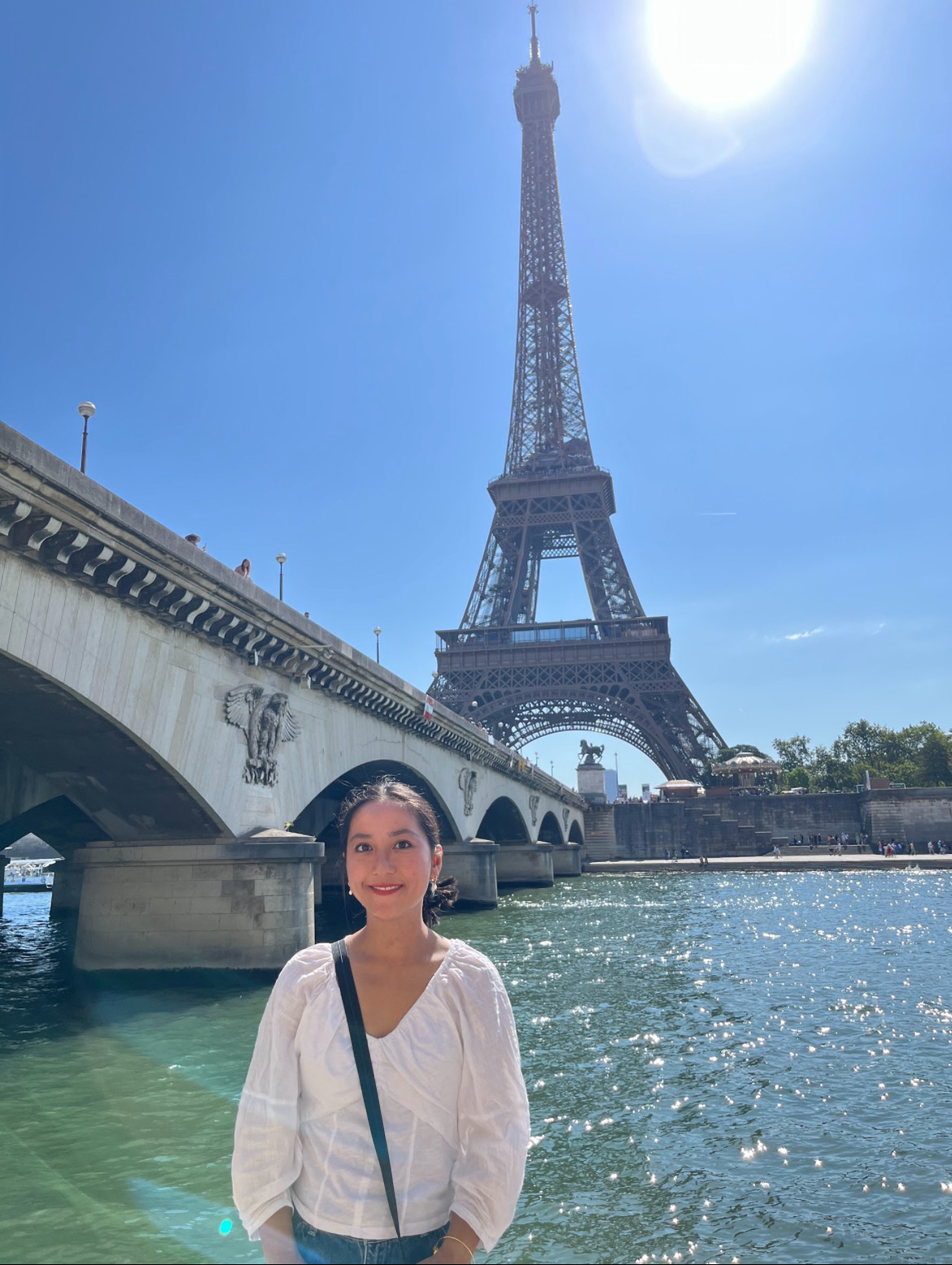
Canada
“A bank account in Canada would be advantageous as we don’t have CashApp or Apple Cash transfers, but we have our own system called eTransfer, which is basically CashApp but with our country’s banks,” said Arjun Pillai, a student from the University of Toronto. “Familiarizing yourself with local transit is a must and just being overall polite will go a long way.”
England
“Different parts of England have different slang,” said Junior Quarshie, a student from the University of Essex. “Make sure you learn a few pieces so you don’t sound like a complete foreigner. Also, stop with the silly English impersonations, only good ones are allowed.”
France
“Try to learn as much French as you can before going, because French people love it,” said Camille Magalong, a business accounting student who attended the Neoma Business School in Reims, France for the 2023-24 academic year. “Don’t assume everyone speaks English.”
“Be prepared, because sometimes the French can be a little rude, but don’t let that rudeness affect your trip, because Paris, where I come from, is a nice city,” said Oceana Ngandji, an international student from Université Paris Cité. “Don’t hesitate to ask questions because some people will be nice with you. Mainly, don’t hesitate to try a lot of restaurants and go to a lot of museums, because they have a lot of museums.”
Hong Kong, China
“Even though Hong Kong claimed itself as an ‘international city,’ most people don’t know how to speak English, especially middle-aged people or the elderly. Young people usually can speak English,” said Man To Cheung, a student of Hong Kong Baptist University. “Learn some Cantonese — highly recommend the traveler to learn some lingo such as mm goy [please] or doh jeh [thank you].”
Cheung also said that Hong Kong Island and Kowloon are densely populated. For experiencing nature, he recommends Cheung Chau, Lantau Island, and Sai Kung. Cheung also gave advice about transportation.
“Locals, especially young people, don’t like taxi,” Cheung said. “Refusing to take a passenger is quite common. Some may also charge extra traffic fees when it’s heavy rain, or just for no reason. This is illegal but quite prevailing. But all in all, Hong Kong taxis are everywhere and convenient. If you want to prevent this kind of risk, you can select Uber.”
India
“You should be open to crossing India’s states,” said Kunal Sheth, a student from India enrolled in SFSU. “In US, where we find different nationalities, in India, you will find different cultural people.”
Japan
“It has gotten better to where like a lot of places are taking credit card, but still you always have to keep cash on you just in case,” said Chiodo, who went to Japan for a semester.
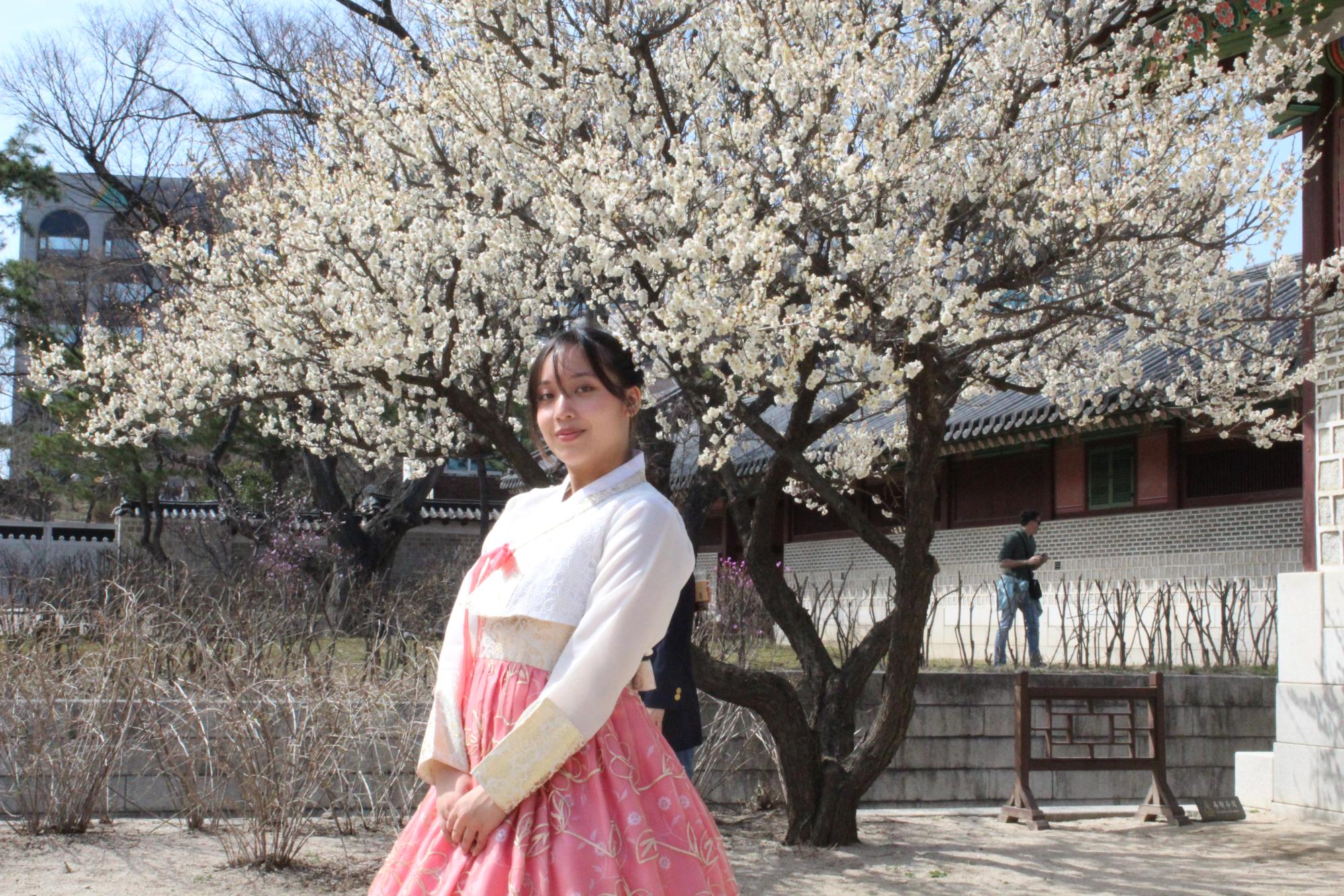
Korea
“There are definitely apps that are really useful,” Bartolo said. “I suggest using Naver Map when it comes to navigation in Korea. It tells you what kind of transport you need to use to go to different places. KakaoTalk is what is the standard form of communication between everyone there. Everyone uses it.”
“Get ready to eat a lot, drink a lot,” Lai said. “The convenience stores actually having food that wasn’t like completely junk food — that was surprising.”
Lai also said the drinking age is 18 in Korea.
The Netherlands
“Just meet people,” said Nikki Vanessen, an international student from the Netherlands. Have fun going to the city. Take every chance you can get to meet other people and make your experience a lot easier.”
Spain
“You’re gonna love it. Like, it’s actually the best country,” said Isabel Schweim, an international student from the University Carlos III of Madrid. “You’re going to meet so many new people because it’s like a very international place and have fun. Go with open arms.”
Switzerland
“Travel the country. It’s very beautiful, you don’t have to worry about things. You can learn a lot of languages. We have four official languages.” said Yannick Scherb, an international student from ZHAW Zürcher Hochschule für Angewandte Wissenschaften in Zurich.
Taiwan
According to Shane Billingslea, who studied at the National Taiwan Normal University in Summer 2023, people in Taiwan are more reserved but don’t be afraid to approach them.
“Like, they will keep to themselves, but as soon as you ask a question or whatever, they’re very bubbly, they’re very fun and they’re super kind in general,” Billingslea said.




